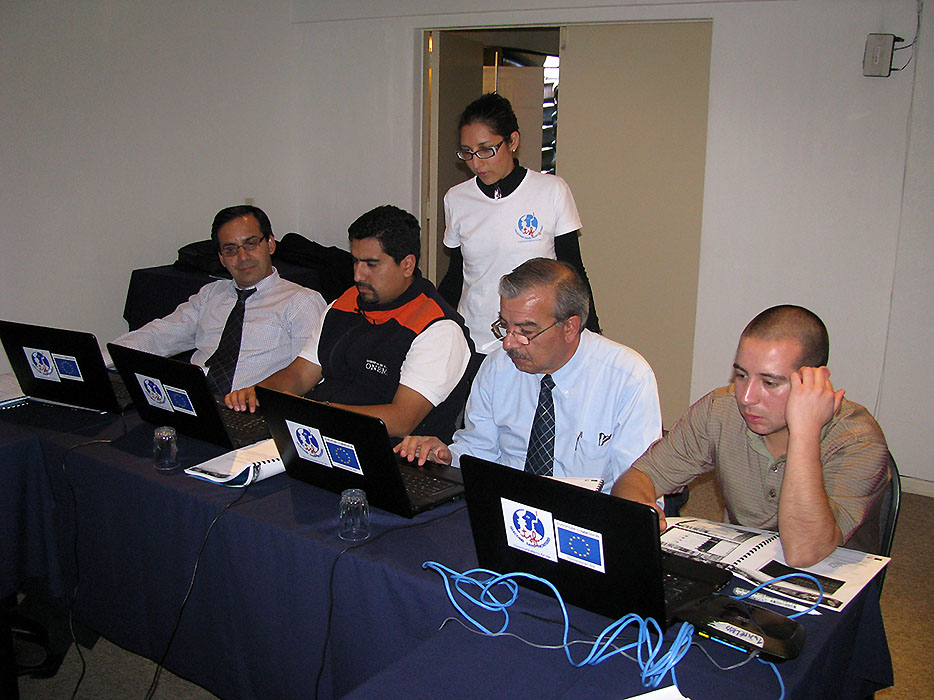Post-emergency - National Capacity Building
Context: Post-emergency earthquake
Start date: 17/05/2010
End date: 24/05/2010
Areas of intervention: Santiago de Chile
Activities: Capacity building
16 government agents trained
11 regions of Chile
Context
On 27th February 2010, a 8.8 magnitude earthquake hit Chile, brining about tsunami and causing over 500 fatalities. Deployed a few hours after the disaster from its regional base in Managua and its headquarters, Télécoms Sans Frontières responded to the needs of the affected populations in collaboration with the Humanitarian Aid and Civil Protection Service of the European Commission (ECHO).
The victims of the earthquake benefited from the humanitarian calling centres established by TSF in the most affected areas. All operations were coordinated with the relevant Chilean authorities, such as the National Office for Emergencies of Chile (ONEMI) and the Under-secretariat of Telecommunications (SUBTEL).
Impact of the earthquake on communications
The impact of this powerful earthquake highlighted the central role of communications. In parallel with TSF's response, the Chilean government received several satellite equipment kits following their official request for telecommunications support.
This mission enabled TSF and the European Commission to put in place recommendations on a telecommunications system for optimal disaster response.
In collaboration with the Interior and Telecommunications Ministries, TSF carried out a comprehensive assessment of the impact of the earthquake in the affected areas.
These assessments, followed by a joint consultation between TSF, ONEMI, SUBTEL and the members of the European Commission, highlighted the need to train government agents in the use of emergency telecommunications.
Capacity building of the Chilean government
The analysis of the telecommunication situation in regions VII and VIII, the most affected by the earthquake, was carried out during the emergency response phase, as well as two months after the earthquake, during joint visits with SUBTEL.
Moreover, it was important for TSF not only to identify the difficulties encountered in the hours that followed the earthquake, but also to understand the response mechanism at the regional and national levels.
Training was conducted in Santiago de Chile from 17th to 24th May 2010 with previously identified staff from ONEMI and SUBTEL.
In addition to theoretical presentations on the emergency environment, telecom computing equipment and telecommunication services available for emergency, the agencies participating in the training benefited from TSF's know-how and technical skills during practical work and simulation exercises.
The goal of TSF was to enable Chile's government agencies to acquire the technical knowledge and skills needed to deploy their own satellite equipment and quickly establish Internet connections and install reliable telephone lines. Therefore, they become able to disseminate the acquired knowledge with their collaborators.
This capacity building programme in Chile was part of TSF's ambitions to transmit its telecom expertise to government entities to enable them to better respond to future emergencies.
National Director of ONEMI, Vicente Núñez, emphasised the importance of strategic alliances with international organisations:
"We are exchanging our experiences and agreements have been adopted on the application of new technologies to the national alert system with US governments, particularly with the State of California, Japan, the European Union, the United States and New Zealand, amongst others. The trainings given this week by TSF to our regional delegates are of undeniable value to help us face emergencies and I thank TSF and the European Commission."





























